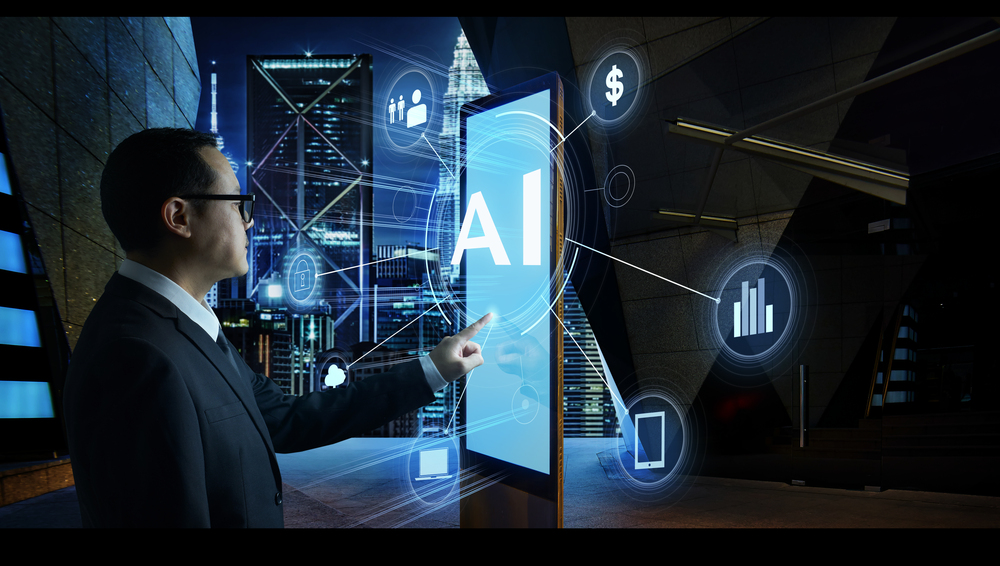Boosting Productivity: AI Automation for Business in 2024
by Sovina Vijaykumar

The relentless pursuit of efficiency is a cornerstone of business success. Companies must operate at peak performance to stay ahead of the curve. This is where Artificial Intelligence (AI) steps in, offering a powerful toolkit to automate tasks, streamline workflows, and unlock significant productivity gains.
Also read: https://katharosconsultancy.com/adaptability-in-technological-change/
The Efficiency Challenge: Burning Man-Hours and Lost Potential

According to the McKinsey Global Institute, repetitive tasks consume 800 billion hours of human labor globally each year. That’s a significant amount of time and energy spent on activities better suited for strategic thinking, innovation, and customer engagement.
For businesses, this translates to:
- Reduced profitability: Wasted man-hours directly impact the bottom line. Automating repetitive tasks frees employees from more valuable activities, improving overall efficiency and profitability.
- Increased errors: Manual data entry and repetitive tasks are prone to human error. AI-powered automation minimizes errors, leading to higher data accuracy and improved decision-making.
- Employee disengagement: Repetitive tasks can be monotonous and demotivating. AI can handle these tasks, allowing employees to focus on more stimulating and challenging projects, resulting in increased employee satisfaction.
The AI Advantage: Automating Your Way to Success

AI offers comprehensive tools and technologies capable of automating various business functions, resulting in significant efficiency gains. Here’s a glimpse into how AI is transforming businesses:
- Robotic Process Automation (RPA): RPA automates rule-based tasks like data entry, form filling, and report generation. A 2023 study by UiPath revealed that RPA delivers a staggering 360% ROI (Return on Investment) within the first year of implementation.
- AI-powered chatbots: These virtual assistants handle customer service inquiries, answer FAQs, and resolve basic issues. Chatbots can deflect up to 80% of routine customer inquiries, freeing up human agents for more complex challenges [Source: Gartner].
- Predictive analytics: AI algorithms analyze vast amounts of data to identify patterns and predict future trends. This allows businesses to make data-driven decisions, optimize resource allocation, and anticipate customer needs more effectively. A report by Forbes Insights in collaboration with Teradata suggests that 73% of businesses are already using AI for predictive analytics, and this number is expected to rise significantly in the coming years.
Real-World Examples: How Businesses are Leveraging AI
- Hilton Hotels: Hilton utilizes AI-powered chatbots to answer guest inquiries, streamline booking processes, and personalize in-room dining and activity suggestions. This has led to increased guest satisfaction and operational efficiency.
- Ford Motor Company: Ford leverages AI for predictive maintenance in its manufacturing plants. AI algorithms analyze sensor data to predict equipment failures before they occur, minimizing downtime and maintenance costs.
- JPMorgan Chase: JPMorgan Chase utilizes AI to automate various tasks in the loan approval process, reducing processing time by a significant margin. This has led to faster loan approvals and improved customer satisfaction.
The Road Ahead: Embracing the Future of Work

Incorporating AI into the workplace isn’t focused on replacing human workers; rather, it’s aimed at empowering them. By automating repetitive tasks, AI frees up valuable human time and resources for activities that require creativity, critical thinking, and emotional intelligence.
Here are some key considerations for businesses looking to embrace AI for increased efficiency:
- Identify the right tasks to automate: Focus on routine, rule-based tasks that consume significant employee time and don’t require creativity or human judgment.
- Invest in employee training: Provide employees with the necessary training to adapt to new AI-powered workflows. This will help ensure a smooth transition and maximize the benefits of AI.
- Focus on data quality: AI algorithms are only as good as the data they are trained on. Ensure data accuracy and quality to optimize AI performance and decision-making.
AI – Your Efficiency Partner
In 2024 and beyond, AI will continue to reshape the business landscape, driving efficiency to new heights. By embracing AI and its associated technologies, businesses can unlock significant productivity gains, enhance employee satisfaction, and achieve a sustainable competitive advantage. The future of work is one where humans and AI collaborate seamlessly, leveraging each other’s strengths to create a more efficient and productive work environment.